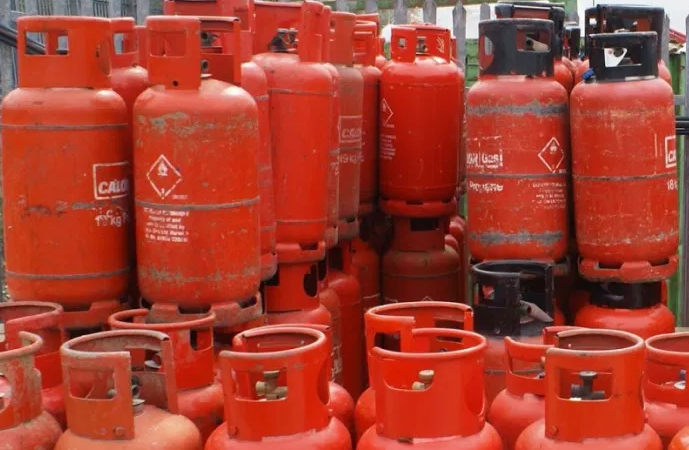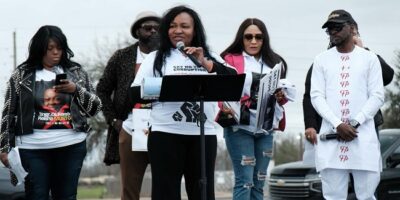Marketers Blame DPR, PPPRA For Rising Cooking Gas Price

- Accuse NLNG of inadequate product supply
Excessive administrative and other sundry charges by the Department of Petroleum Resources (DPR), the Petroleum Products Pricing Regulatory Authority (PPPRA), among others, have caused an astronomical rise in the price of Liquefied Petroleum Gas (LPG) commonly known cooking gas, Flavision’s investigation has revealed.
Also, insufficient supply of LPG to local marketers by the Nigeria Liquefied Natural Gas (NLNG) Limited, which is the major supplier of the product in-country, has also contributed to the scarcity of the product and the resultant increase in price lately.
The numerous charges by the regulators have forced the marketers of the product to hike the price at their stations, resulting in consumers having to pay more for cooking gas, which the federal government is projecting as the preferable cooking fuel.
Some of the marketers and LPG terminal operators, who spoke to Flavision, equally attributed the sharp rise in the price of LPG to the difficulty in accessing foreign exchange at the official Central Bank of Nigeria (CBN) rate, adding that they could not access forex at the parallel market due to its exorbitant rate.
Lately, the price of LPG has gone up that many Nigerians now find it difficult to continue using the fuel.
For instance, in some gas stations in Lagos, Nigeria’s commercial nerve centre, to fill a 12.5kg cylinder costs about N4,200, which is about N1,000 higher than the price before November last year.
The situation, according to the investigation, has forced some low-income Nigerians, especially the local food vendors, to resort to using firewood and sawdust to cook.
One of the marketers, who pleaded to remain anonymous, said new charges by the PPPRA, DPR and other agencies were part of the reasons for the high cost of LPG in the country.
Some of the reasons why gas price is going up are, one, new charges by government agencies – the PPPRA, DPR, etc.
Also, you know that the product is in dollar and with the fall in Naira value, the cost of importing the product is going up.
Again, you know that during winter period, there is always an increase in the use of gas, especially in Europe where most imports are coming from, thus making the product to be in high demand and costly.
Another major factor is the fact that local supply is still less than 40 per cent of total local consumption, thus making most depot owners to do more of imports with attendant effect on cost. So, it is not our fault, there is nothing we can do,
he stated.
According to him, rather than give more attention to export to the detriment of the country, the NLNG should ensure that it makes more products available to marketers to boost supply and force down the high price.
The Nigeria Liquefied Petroleum Gas Association (NALPGA) has also cited charges by the regulators as one of the causes of the high price, saying the current levies on a 20MT LPG truck has exceeded N120,000.
The Executive Secretary of NLPGA, Mr. Olakunle Oyebanjo, said the levies included NUPENG levy – N23,000; DPR’s Off-Take Permit – N50,000; and PPPRA’s Administrative Fee – N49,200, all totaling N122,200.
He said the levies were just a few of the many rates being paid by the marketers, which are passed to consumers.
Also, marketers under the auspices of Nigerian Association of Liquefied Petroleum Gas Marketers (NALPGAM), attributed the rise in the product’s price to the vagaries of the international market.
According to the Executive Secretary of the association, Mr. Bassey Essien, the cost of importing 20MT truck of LPG has gone up from the previous price of between N4 million to N5 million to N5.3 million within a month.
We have watched the continuous spike in the price of cooking gas, moving from N4 million to N5 million for a 20MT truck to the current price of N5.3m within a month interval.
It is thus disheartening that at a time that people were yet to recover from the negative economic implications of the COVID-19 pandemic, which has virtually crippled the people’s purchasing power, coupled with the economic backlash of the #EndSARS protests, and the attendant recession in the country, the hike in the price of a vital cooking commodity in homes would come up to further add woes to an already despondent populace.
We have watched the continuous spike in the price of cooking gas, moving from N4 million to N5 million for a 20MT truck to the current price of N5.3million within a month interval,
Essien added.
However, the LPG Manager at Rainoil Limited, Mr. Jude Nwaulune, also attributed the hike in cooking gas price to the vagaries of the international market, difficulty in accessing dollars for importation and insufficient supply by the NLNG.
He said marketers have to sell according to the price they bought at the international market.
He added that only the NLNG supplies the product locally and that the company has not been meeting local demands.
He explained that NLNG supplies a paltry 40 per cent of the total LPG needed for local consumption while 60 per cent is imported.
He, however, said neither the marketers nor the government should be blamed for the rise in price of LPG as it has been deregulated like other products like kerosene and diesel, and therefore, government does not have a hand in the rise and fall of the LPG price.
Nwaulune said:
I understand there is a drop in American oil supply which played a major role. I think as at yesterday, (last Wednesday) we are watching it going from $388 per metric tonnes to about over $400.
We see this international prices going up. So it’s clearly a function of the international price, that’s one. Two, locally here, at the forex market, the dollar is not even available for traders for import.
Locally, the cost of importation has gone up. So, these are factors that affect this rise in price. We have watched it move up and from my point, I do not expect a drop in price soon.
And for your information, the LPG is deregulated like other deregulated products -AGO and ATK. So, government do not have hand in it. It is sell as you buy.
What we should have done as a country is to put our house in order. Nigeria is a big producer of these products we import but we cannot foot our bills locally. So that’s exactly what you are seeing happening.
According to him, an NLNG vessel comes into Lagos once in a month and supplies the likes of NIPCO, the Petroleum Products Marketing Company (PPMC), an arm of the Nigerian National Petroleum Corporation (NNPC) and a few others only.
I am not too sure whether the NLNG has even visited this January. The last expectation was in December. I didn’t follow up with that vessel to know whether the vessel came as planned towards late December. So these are the challenges,
he added.
However, in its reaction to the allegation of excessive charges, the DPR said it has not introduced any new charges including the alleged “off-takers permit” since five years.
The Head of Public Affairs, DPR, Mr. Paul Osu, told Flavision that
DPR in the last five years has not introduced any new charges to LPG operations in Nigeria, including the off-takers permit.
As earlier advised, please check with other agencies in the gas/LPG value chain.
However, NLNG and PPPRA declined to respond to the allegations.

Justin Nwosu is the founder and publisher of Flavision. His core interest is in writing unbiased news about Nigeria in particular and Africa in general. He’s a strong adherent of investigative journalism, with a bent on exposing corruption, abuse of power and societal ills.













